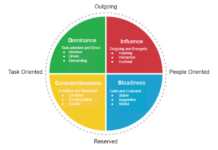
Oh, we’ve all been there. It’s a nice event or party but suddenly we run out of things to say to the person across from us. We take multiple sips of our drink while continually muttering “Yeah… that was so funny… yeah…” and hope that a beam falls from the ceiling so you have something to talk about.
Crap, this conversation is beyond salvaging and you were really hoping to make a connection with that influential person!
If this sounds familiar or brings back painful flashbacks,worry no more.
Here are 5 conversation tactics for social situations you can use TODAY:
- Understand awkward silence.
Awkward silence isn’t because you run out of things to talk about. It’s not because you’re a bad conversationalist. Here’s what leads to awkward silence:
Jim: Sunday was so fun! Boats are wonderful.
You #1: Yeah, totally.
Or You #2: Huh. Yup.
Or You #3: I guess so.
Did you catch it? It was really quick. Awkward silences are caused by an answer/acknowledgment to someone else that doesn’t add anything. It effectively ends the conversation. It’s as good as silence. It puts a period on a sentence and verbally shuts the door without opening a window. So add something like a follow-up question or share about yourself!
2. Master witty comebacks.
Don’t you hate when you think of an amazing witty comeback when you’re in bed at night? Really could have used it 4 hours earlier…
Here’s my simple formula for becoming a witty comebackMACHINE. Let’s say someone called you a terrible cook.
Step 1: What are they saying in plain terms? That you cook poorly.
Step 2: Agree with their statement. I cook very poorly.
Step 3: Exaggerate their statement to an outlandish degree – “Yeah, my eggs are sometimes used to poison my enemies. Now eat.”
This type of witty comeback effectively deflates the other person because their words have just rolled off your back as slick as can be.
3. SBR.
Run out of things to say? Just remember SBR – Specific, Broad, Related.
Just think of them as 3 separate directions to go in. On a given topic, you can ask about the specifics, the broader generalities and context, or a related topic.
Let’s say the topic is cooking eggs.
Specific: the kind of eggs, how much oil is used, why you cook eggs that particular way, what style you like, and so on.
Broad: how often you eat eggs, how often you cook, how much you like eggs, if you cook breakfast frequently, and so on.
Related: other things you cook, what your favorite food is, how often you eat out, your current diet, and so on.
Mixing and matching these 3 directions is essentially the backbone of most conversations.
4. Fallback stories.
A fallback story is the following: “So get this. My friend’s co-worker made a big fuss about being proposed to by his girlfriend. Pretty non-traditional, right? What are your thoughts on that?”
A fallback story introduces a highly relateable story and topic with the necessary context. Choose a fallback story that people are bound to have an opinion on, and you have just energized your conversation. Make sure that you also have an opinion or stance on the topic you are bringing up.
The best part about these is you can prepare a few of these beforehand and present them spontaneously. “I just read…” “I just heard…” “Did you know…” all work well – just make sure it’s broad enough so that people will be able to comment on it!
5. Don’t answer questions literally.
When you ask others “How are you” or “How was your weekend,” do you actually care about the answer?
Maybe about 1% of the time and only if it directly relates to you.
It’s the same with other people. They don’t care about the questions they are asking you – what they really want is just to hear something interesting. If it happens to coincide with the question they ask, even better.
So you don’t need to answer the literal, direct question that is being asked. Re-direct it to something interesting or eventful. You don’t have to abide by the linear, interview-y structure that many conversations abide by.
How was your weekend?
Literal answer: I watched the home and gardening channel for 6 hours and ate 3 bags of Cheetohs.
Interesting answer: Oh, I didn’t do much this weekend. But a couple of weekends ago, I [insert interesting or eventful topic]!
Which do you think people will receive better?





